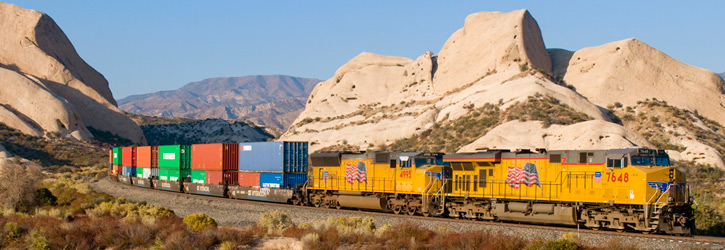
Class 1 Railroad Negotiations
Freight shippers and receivers are often at a disadvantage when negotiating with railroads, due to a deficit of knowledge about rail industry standards regarding haul costs, rates and agreements. RLBA provides clients with the railroad expertise necessary to ensure a fairer negotiation process and outcome.
Select Project Descriptions
TRANSLOAD AMERICA AND NORCAL WASTE, INC:
RLBA assisted in the planning of a prospective solid waste management waste-by-rail new start initiative in the greater Los Angeles area. Services provided included investigating the feasibility of a proposed, unit-train-served transfer facility to ensure competitive disposal costs to the receiving Crestline Landfill in Nevada. Unreasonably high rail rates would force the development of alternative disposal systems including truck hauls to closer landfills, as well as incineration, which would have been less attractive to the local community. The primary focus involved on site feasibility, rail route, capacity and pricing. The project involved multiple parties including from Union Pacific Railroad, the City of Pico Rivera, the State of California and the Public Utilities Commission. RLBA’s Director of Transportation Engineering evaluated construction plans and costs.
GT LOGISTICS, LLC:
GT Logistics, LLC (GT) contracted RLBA to provide a myriad of professional railroad consulting services, with the scope of work being divided into three “phases” or tasks. In the first phase, RLBA supported and advised GT in its attempt to secure approval of a Track Agreement with Union Pacific (UP). RLBA reviewed the sample Track Agreement provided by UP and recommended revisions for GT to request from UP as part of the negotiation process. In addition, RLBA referenced commercial terms from previous applicable rail negotiations it completed.
ROCKY MOUNTAIN COLBY PIPE:
RLBA was engaged by Rocky Mountain Colby Pipe, a carload volume shipper, to review a proposed industrial track agreement advanced by the Union Pacific Railroad, which serves the client’s facility in northern Oregon. RLBA provided its expert opinion on potential issues and language which RLBA staff suggested the client address with the railroad before entering into the agreement. Additionally, RLBA conducted a physical inspection of the track at the client’s facility to clearly define the maintenance and safety responsibilities of the client.
